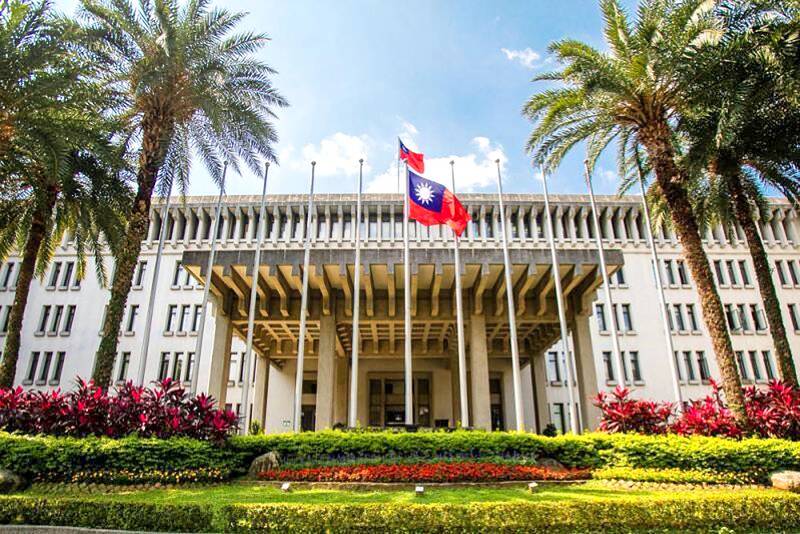The Thai government on Tuesday said that it would extend its visa waiver program for Taiwanese passport holders for six months, expecting to attract 700,000 Taiwanese visitors this year.
Thailand first announced a six-month visa waiver for Taiwanese starting on Nov. 10 last year. The program was to end on tomorrow, but Thai authorities extended it to Nov. 11. The decision was approved at a meeting of the Thai Cabinet.
The program grants Republic of China (Taiwan) passport holders traveling to Thailand for tourism purposes a visa-free stay of up to 30 days. Before the program, Taiwanese were required to pay NT$1,200 per person for a Thai visa.

Photo courtesy of MOFA
In Taipei, the Ministry of Foreign Affairs said that the move by the Thai government to extend visa waivers for Taiwanese travelers was very welcome. The Thai government’s decision shows that the New Southbound Policy of the administration of President Tsai Ing-wen (蔡英文) has paid off, it said.
The New Southbound Policy aims to enhance trade and exchanges between Taiwan and 18 countries in Southeast and South Asia, as well as Australia and New Zealand, to reduce Taiwan’s dependence on China.
Thailand is an important partner under the New Southbound Policy and also a popular destinations among Taiwanese, the ministry said, adding that it would continue to seek more visa waivers or other measures that provide greater convenience for Taiwanese travelers.

An undersea cable to Penghu County has been severed, the Ministry of Digital Affairs said today, with a Chinese-funded ship suspected of being responsible. It comes just a month after a Chinese ship was suspected of severing an undersea cable north of Keelung Harbor. The National Communications and Cyber Security Center received a report at 3:03am today from Chunghwa Telecom that the No. 3 cable from Taiwan to Penghu was severed 14.7km off the coast of Tainan, the Ministry of Digital Affairs said. The Coast Guard Administration (CGA) upon receiving a report from Chunghwa Telecom began to monitor the Togolese-flagged Hong Tai (宏泰)

A cat named Mikan (蜜柑) has brought in revenue of more than NT$10 million (US$305,390) for the Kaohsiung MRT last year. Mikan, born on April 4, 2020, was a stray cat before being adopted by personnel of Kaohsiung MRT’s Ciaotou Sugar Refinery Station. Mikan was named after a Japanese term for mandarin orange due to his color and because he looks like an orange when curled up. He was named “station master” of Ciaotou Sugar Refinery Station in September 2020, and has since become famous. With Kaohsiung MRT’s branding, along with the release of a set of cultural and creative products, station master Mikan

Actor Lee Wei (李威) was released on bail on Monday after being named as a suspect in the death of a woman whose body was found in the meeting place of a Buddhist group in Taipei’s Daan District (大安) last year, prosecutors said. Lee, 44, was released on NT$300,000 (US$9,148) bail, while his wife, surnamed Chien (簡), was released on NT$150,000 bail after both were summoned to give statements regarding the woman’s death. The home of Lee, who has retreated from the entertainment business in the past few years, was also searched by prosecutors and police earlier on Monday. Lee was questioned three

RISING TOURISM: A survey showed that tourist visits increased by 35 percent last year, while newly created attractions contributed almost half of the growth Changhua County’s Lukang Old Street (鹿港老街) and its surrounding historical area clinched first place among Taiwan’s most successful tourist attractions last year, while no location in eastern Taiwan achieved a spot in the top 20 list, the Tourism Administration said. The listing was created by the Tourism Administration’s Forward-looking Tourism Policy Research office. Last year, the Lukang Old Street and its surrounding area had 17.3 million visitors, more than the 16 million visitors for the Wenhua Road Night Market (文化路夜市) in Chiayi City and 14.5 million visitors at Tainan’s Anping (安平) historical area, it said. The Taipei 101 skyscraper and its environs —